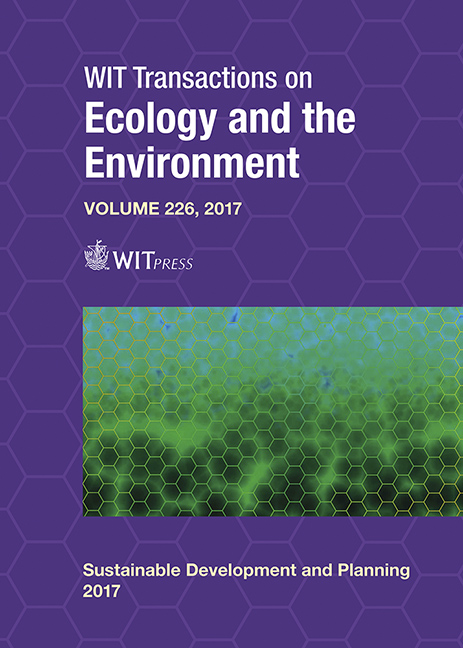THE POTENTIAL OF PARTICIPATORY DESIGN TO IMPROVE URBAN SPACES IN THE SLUMS OF CARACAS, VENEZUELA
Price
Free (open access)
Transaction
Volume
226
Pages
10
Page Range
469 - 478
Published
2017
Size
560 kb
Paper DOI
10.2495/SDP170411
Copyright
WIT Press
Author(s)
CARLOS E. GONZALEZ R., PRASANNA DIVIGALPITIYA, TAKERU SAKAI
Abstract
It may be said that slums have become one with Caracas, and so to eradicate them completely would be almost impossible task. A more suitable solution therefore is to rehabilitate these areas, and improve the current living environment. Taking into account the meagre access to construction materials, the prevailing social conditions, and the absence of appropriate planning, we studied the potential of involving the inhabitants themselves through Participatory Development. After a detailed analysis of the current urban spaces, and following consultation of the local community, as well as professionals working in this field, we are able to generate lists of priorities based directly on the local inhabitants’ needs and desires, including: playgrounds; pathways; green areas; community centres; and other forms of small to medium-scale projects. This forms the basis for developing proposals to improve their community with their involvement and assistance. As was the case with urban projects such as ‘Espacios de Paz’ and ‘Inclusión de Habitantes’ (which included aspects of Slum Upgrading strategies and Participatory Design in slums of Venezuela), we conclude that shifting the methodology from slum eviction to slum upgrading fosters inclusion and respect for local heritage and culture, and creates a more sustainable and human-focused approach that aims to provide solutions to an on-going, deep-seated challenge.
Keywords
urban poverty, participatory development, informal settlements, slum rehabilitation





